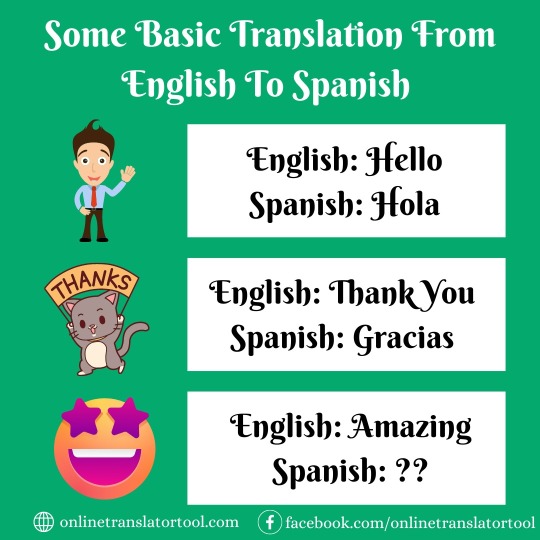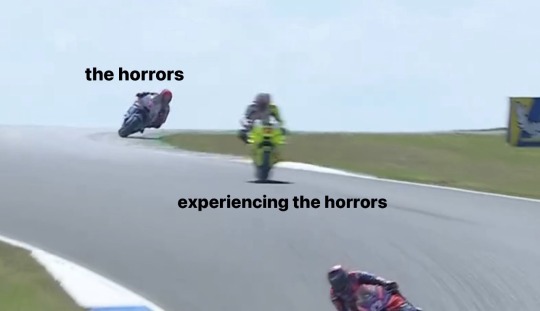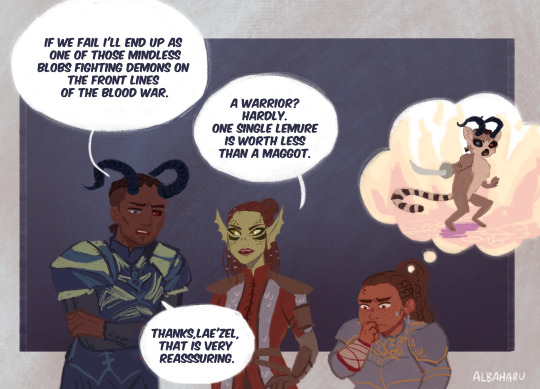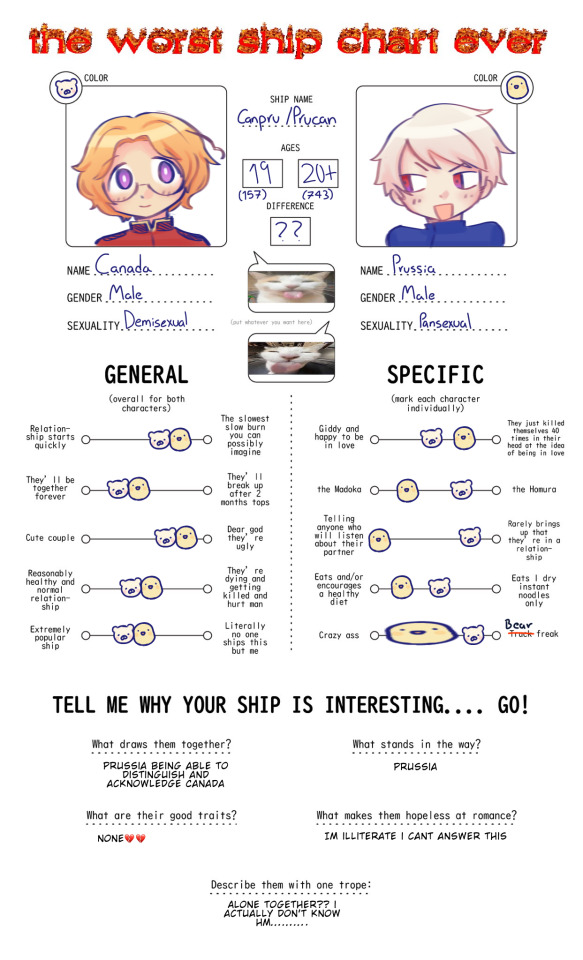#english to spanish translation
Explore tagged Tumblr posts
Text
In the Spanish Gravity Falls dub, the “My ex-wife still misses me..but her aim is getting better!”
Is translated as “My ex-esposa todavía me quiere…¡me quiere matar!”
Roughly translating to “My ex-wife still wants me… wants me dead!”
#Being one of the first jokes I understood in Spanish I was in hysterics over this#it’s a dumb joke#it has a place en mi corazón#spanish#translation#gravity falls#it’s a bit more intense than the English one tbh#Quinn posts#100#500#10k#15k
17K notes
·
View notes
Text
Online English to Spanish Translation
Online translator tool is a free tool to translate English text into Spanish. You can translate words, sentences, and even paragraphs tool

#english to spanish translation#english to spanish translator#english to spanish translation online#online english to spanish translation#translate english to spanish words#translate english to spanish paragraphs#translate english to spanish sentences#english to spanish
0 notes
Text
Boosting Your Business With English To Spanish Translation
Even back in the day, English to Spanish translation was dealt with, but it was few and far between. With the advent of globalization, customer demands have changed, and businesses found the indicator in a pile to be the Spanish to English translation.
A written audio or text file in any language can be localized or translated by an accurate translation agency. Therefore, in numerous ways, English to Spanish translation plays the role of Hero saving the day for international businesses.

How English to Spanish translation boosts your business
Creates a global image
Branding makes a business at a global level and a regular business at two diverse levels. Think from the customer’s perspective; which hair leveling product are you likely to use more, those that are available in English or the ones available in French or Dutch?
English is a popular language, spoken by some and understood by many. It’s difficult to oversee language when creating an international brand is the main focal point.
Vendors are not only the bright minds behind an effective strategy, and a translator works at the back-end with the team to let the rest of the team understand the cultural aspects.
2. Two-way communication
Buyer care is often under the central point of a revolver. Why? A lack of complete response is what makes a business misplace their customer.
How should a customer reply if you provide your services only in Chinese or Hungarian? Remember that your consumer is international, and respond to the reach out to the customer in their native language.
3. The secret behind the global success story
The industry is nil without the filing. If you are about to enter a new biological location, it demands; guidelines, various analyses, questionnaires, primary or secondary research, etc., that should be written down.
With the help of skilled English to Spanish translation, you can engage your clients with business prospects and ideas in their native language.
4. Impact on the E-commerce Industry
With the advent of Intent, the world is constantly evolving, and it is plausible to think online communities want a comfortable, familiar domain to buy the service or product. Language comfort is more important for the selling point than initially made-up.
Numerous companies interacting in eCommerce are now converging on multilingual websites, making the presentation of every service and product available in most languages.
5. The constant pace of the global market
A reliable, trustworthy English to Spanish translation agency can be a game-changer for the business, assisting a business to become an international brand.
Translating the product’s reviews and descriptions can grow consumer reach. Translation involves proper strategy building in every trade niche, such as communication, media, construction, entertainment, arts, and agriculture, etc. Every business requires translation for advertising in a healthy manner.
Wrapping Up
English to Spanish translation is a real growth lever and can significantly boost your brand's visibility with a global audience in South America, the Caribbean, Europe, etc.
Choose an experienced, qualified, and trusted professional translation agency like Acadestudio. You will get a 100% accurate Spanish to English translation that can be used directly by your Spanish-speaking audience.
0 notes
Text
Mike: I think I know you from somewhere very distant…
Amzet: Yeah, you know who I am? I do know who you are.
Mike: Bobby! Bobby!!! How are you, how are you Bobby? How long has it been?

Mike reunites with an old friend (in another universe)! :')
#Mikethelink#QSMP#Bobby#Amzet#Hormigeo#May 29 2024#Mike#love that he called him ''Bobby'' for a minute before remembering ''oh wait''#He complimented Bobby's jokes... :')#For those who don't know: Amzet was Bobby's admin!#Sorry this isn't a full transcript I'm listening to Mike speaking Spanish Portuguese and English right now and my brain is a bit scrambled#feel free to add a transcript / translation though!#I don't think I'll have a chance to get back to this until way later#(assuming I don't forget OTL)
659 notes
·
View notes
Text
so you’re telling me bezz told sky sport that he made a little mistake during the sprint bc he saw that “marc was coming to catch him”. he said that he was trying to focus on martin, but he knew marc was getting closer and closer and then he fucked it up

( “ehi bezz your crush is here act normal” bezz: fall off his bike )
#“MARC STAVA VENENDO A PRENDERMI”#it literally means “he was going to take me”#i know he meant it as he was going to catch me and that’s how it’s kinda translated in english but still italian is a funny language#you’d think he was talking about the boogeyman and not. a tiny spanish twink#the marcmarc lore is getting crazier#sky sport italia thank you for your service#marco bezzecchi#marc marquez#marcmarc#french gp 2024#motogp#marc <3
528 notes
·
View notes
Text

Hi! A long while ago I saw a screenshot just like this and I've been meaning to draw it with them but kept forgetting sjdkfd so here it is yippiee
Anyways, imagine that since Nimona nearly let everyone know that Ballister was going to have Baby (from this post), some coworkers were asking for updates in their group chat or something 😭
#nimona#goldenheart#goldenheart fankid#fankid#my art#this is so silly but whatever sjdfksfs#from time to time i'd think about it and remember that I wanted to draw it sjdfksjf#the original thing was in spanish but tried to translate it well enough to english sjdfkf#ballister and ambrosius could have a good relationship with their coworkers methinks#but all the 'let's all make fun of ballister' thing 😭😭
254 notes
·
View notes
Text
maffhew who refuses to say runebergin torttu because he knows hes gonna butcher it so bad he might be kicked out of the country the second he tries and staunchly avoids that by going "the one dessert that barky is going to have to explain 😃"
sasha who gets faced with the most generic description of everything hes ever eaten in his life so far because of maffhew and going "???... oh you mean runebergin torttu!"
"he did good he liked the food and he likes the finland so far so its good" sasha says with so much pride now that all the anxiety has left his system that his husband teammate is enjoying his country and doesnt hate it
media availability | 10.29.24 (x)(x)


the smile of a man who knowlingly doomed his husband and said husband using all his brain power to context clues his way to whatever the fuck he just got asked that his brain is running hotter than a mid 2012 macbook air thats somehow still alive in the year of the lord 2024 but girl does she chug along shes louder than a fighter jet
#matthew tkachuk#aleksander barkov#florida panthers#2425#the famous vanha kauppahalli date™#we know how bad he is at pronouncing words not in english he does not want to fuck up his husbands language in front of him#(the nhl stars try to speak german video has entered the chat)#different attitudes here lmao#“he did good” mate he was... eating food... what... what is there to praise here..?#i shivered sweet mary and joseph sasha this is how you praise maffhew? yeah id be an annoying little shit about it too#whatever they have. unexplainable. i wont even bother#im glad to see pie and cake are still very confusing for esol#somehow ive had the conversation with several different people in my lifetime and realised even i dont know what the fuck it is#in the sense that when i translate pastries into english for my american friends i just pause and go#wait... i think this is a pie... but its called a tart in spanish but its also kind of a cake? and- [windows reboot sound]#ive had to do this with pastafrola and im like please just eat it dont make me explain im gonna cry if i do#I DONT KNOW WHAT IT IS IN AN ENGLISH CONTEXT BECAUSE IT DOESNT EXIST IN AN ENGLISH CONTEXT TO ME JUST EAT IT#“so whats the difference between a torta and a tarta and isnt a tarta kinda like a pie-” “stop asking questions you dont want answers to”#you have no idea how upset i get trying to explain#im glad sasha at least protrays a little of that frustration by going “i dont know english word” girl SAME
232 notes
·
View notes
Note
it's fascinating to me how endlessly complicated High Valyrian seems to be when you answer questions about it. Is there any language in the world more or less at the same level of complexity?
It depends how you're thinking of complexity. All the languages of the world are equally complex. They have to be, because they all need to perform the same function, and they're all used by the same human brains living inside the same humans living human lives. I think English speakers (and hypothesize that, by extension, the same would be true of Chinese speakers, Hawaiian speakers, Vietnamese speakers, Swedish speakers) look at certain other languages and think of them as more complex in the meta sense because they are more morphologically complex.
By this, I mean in English, for a noun you need to know its singular and plural form—that's it. For a verb, you need to know its -s form, its -ed form, its -ing form, and, very rarely, its -en form. There is some irregularity in form for almost all of these (-ing appears to always be regular), but there aren't more forms, outside of "to be", which has a unique first person singular form.
And...that's it, really. We have adjectival comparison, I guess, but even that can be traded out for an expression (aside from "better" which can't be replaced easily by "more good", most comparatives can be replaced—e.g. you can say something is "more red" than something else even though you can also say it's "redder" than something else). There aren't many word form changes in English a user has to learn in order to be able to use those words in a sentence. The same is true of those languages I listed in the parenthetical phrase above.
Compare that to Spanish, where there are more word form changes for verbs in the present tense (indicative and subjunctive) than in the entirety of English. And that's just one tense for verbs! There's loads more that needs to be memorized; many more word form changes you need to know to be able to use words effectively in a sentence. And there are irregularities on top of that!
Is it the case, therefore, that Spanish is more complex than English?
Certainly, Spanish is more morphologically complex, but does that mean you can express more in Spanish than you can in English? Certainly not! So then what does it mean when we say Spanish is more morphologically complex than English? What's the upshot? What does it mean for the language user?
Perhaps it would help if we compare some Spanish verbs and their English translations:
hablabas "you were talking"
hablé "I spoke"
hable "you would speak"
The precise translation of these verbs will depend on context, but this is a fine example. These are all single words of Spanish. They're different forms that must be memorized, but they're single words. The English requires at least two words for each concept.
So which is more complex? On the one hand, you have fewer words but more forms. On the other, more words, and more words = bigger.
And that, essentially, is the crux of it.
Any time you have complexity baked into single words morphologically in one language, you'll find complexity in the form of multiword expressions in a less morphologically complex language. The meanings are always there(*), but they're expressed in different ways.
As English speakers, we're used to having to express things in multiword expressions, and a speaker of a given language will find their own language to be simple just because. We extend that to think of languages like ours as simpler than those that are different. But, in truth, it's six of one, half dozen of another. Furthermore, there's just as much complexity in languages with less morphological complexity. Consider the following expressions in American English:
I walked to the store. ✅
I walked to a store. ✅
I walked to store. ❌
That's pretty standard. English has articles and you need to use them, right?
I ate the dinner. ✅
I ate a dinner. ✅
I ate dinner. ✅
All those are okay. They don't mean the same thing—and, indeed, the first two have much more restricted contexts—but they're all okay. That's a little weird, isn't it?
Not as weird as this:
I made it by the hand. ❌
I made it by a hand. ❌
I made it by hand. ✅
The first two aren't just weird: they're yikes-a-doodle-do wrong. You might try to brush it aside and say that it's just an expression, and, sure, it is, but ask yourself this: how'd that expression come about in the first place? This one is actually from Shakespeare (Romeo and Juliet) and still works the same way in American English:
You kiss by the book. ✅
You kiss by a book. ❌
You kiss by book. ❌
And just for funsies:
He won by the nose. ❌
He won by a nose. ✅
He won by nose. ❌
You might think the way these shake has to do with what they stand for—that the semantics of the noun in question condition whether or not you can use articles—but consider the first one "store" and compare it to this one:
I walked to the Barnes & Noble. ✅
I walked to a Barnes & Noble. ✅
I walked to Barnes & Noble. ✅
Barnes & Noble is a store, but refer to it by title, and suddenly it's all okay.
Now, if your native language is English, ask yourself: when and how did you learn all of this? Did someone sit you down and tell you where to use which articles and where not to? I'm sure there was some level of instruction you got in elementary school (whether it was accurate or not), but how much of a difference do you think that made? Did you just not use articles before then? And even now, could you explain this? Do you even think about it? Or do you just do it—flawlelssly and effortlessly? Adult learners of English will tell you learning this stuff is a nightmare. Throw in phrasal verbs (pick up vs. pick out vs. pick on vs. pick up on vs. plain old pick) and suddenly English doesn't look too simple anymore.
Bringing this back to your question, when you look at High Valyrian, is there a natural language with an equal amount of morphological complexity? Sure. Maybe something like Latin. But understand that any language will be as complex—not more, not less: as. The only difference with High Valyrian, actually, is its vocabulary isn't as large (give me a couple decades), and it doesn't have nearly as many users as any natural languages. It's also being kept artificially small, in that the language is built up to fit a fictional reality, rather than being expanded to handle anything, the way modern languages are. But pick up any language and it will be equally complex.
(*) From above, it is not always the case that the same "meanings" will be in the equivalent translation of a given sentence. A good example is gender. If you say El río es largo in Spanish it means "The river is long" in English. Like, exactly that. There is no question that these two phrases are functionally equivalent. HOWEVER there is more information in the Spanish sentence. The words el, río and largo are all masculine gender. What does that mean? Nothing more than that they're not feminine. If you hear el in Spanish there are a limited number of words that can legally follow it. When you hear largo, you know that what it refers to has to be in the same class. The function of this is simply to enrich the signal. If you only hear "is large" in English from the previous sentence, you have no idea what noun is large. If you hear es largo in Spanish, you also don't know—but whatever that thing is, you know it has to be masculine. That means that if a Spanish speaker has to guess what es largo they were trivially have a better shot at guessing correctly than an English speaker guessing what "is large" (e.g. if an English speaker has a one in a million shot, a Spanish speaker has a one in 500,000 shot, because roughly half the nouns of Spanish are masculine and half feminine). This means, technically, there's more information in the Spanish sentence than the English sentence, and that information is not represented at all in the English sentence, and is, essentially, unrecoverable. But that "information" is more morphological in nature than semantic.
332 notes
·
View notes
Text


Murderbot collects swear words
#I think this cause of it recording something rude Gurathin said (I think) in another language to look up later#the reason I picked mandarin as the language is because that’s the only language I can attempt to write in#other than English obvi and like a pathetic amount of Spanish#ART is translating#AKTUALLY they said#‘die! (electronics version) terrible computer! fuck your mother!’#apologies if my mandarin is actually ass I KNOW#I know (● ˃̶͈̀ロ˂̶͈́)੭ꠥ⁾⁾#murderbot#tmbd
135 notes
·
View notes
Text

apparently a lemure and a lemur are different things
#wyll and lae'zel being my faves and then discovering they got the same writer...#anyways in the spanish version they translate it as the lil animal so i think my confusion is understandable#wyll ravengard#but i have seen english speakers also confused by it SO...#bg3#baldur's gate#baldur's gate 3#baldur's gate iii#bg3 spoilers#lae'zel#lae'zel of k'liir#tav#tav bg3#prudencia tav#dwarf tav
305 notes
·
View notes
Text

my first time doing a ship chart dont throw tomatoes at me guysh. im elaborating on the tags because im embarrassed. user f0rgetf0rgetting extreme yap session
i also got too passionate on the madoka magica one and ended up doodling this

#im slightly projecting on cadana bc i actually dont know what am i (currently unlabeled) but the demisexual flag fits somewhat#feel that it also fits him…….prussia is self explanatory me thinks. it fits him like a ring on a finger#(is that also a saying in english? im directly translating it from spanish😭😭😭lolz)#my take on their relationship is based on this fic i read once#The Invasion Domestic by calciseptine on ao3. life changing made me a prucan enthusiast#(also the reason as to why i think prussia himself stands on the way of their relationship and the slowburn)#NOW. THE MADOKA ONE STAY WITH ME#if what i understood of my watch of the show. the two of them are willing to sacrifice things for the other HIGHLY but in different ways#i dont think prussia is nice kind nor remotely innocent as madoka BUT he is completely willing to sacrifice his whole existence for canada#like. without doubting it even once. “my life is yours the moment i realize it’’ (pulled this line out of my ass)#canada is more than willing to make sacrifices for prussia#he loves him regardless of his stupidity and mediocrity. he is willing to fight to save him in his own terms#ENPHASIS ON HIS OWN TERMS BECUASE THEY ARE BOTH SO DIFFERENT DROM EAHC OTHER#anywho. i feel like canada (as america’s brother) doesnt mind eating whatever he was available#hetalia#hetalia prussia#hetalia canada#prucan#canpru
138 notes
·
View notes
Text
Quackity: Luzu!
Acau: Oh! Hello!
Luzu: Oh? Hello! Then I’ll speak in Spanish.
Acau: Whoa, Spanish.
Luzu: How are you?
Acau: Wow, nice to meet you!
Luzu: The first thing you should know is: don’t try to get along with anyone. That goes for everyone. You have to kill every single one of them.
Quackity: [laughing] What?!
Acau: Huh? Oh my god…
Luzu: Listen carefully.
Acau: I have to kill people? PVP?
Luzu: If you want to live, listen carefully. Everyone steals from each other around here. Isn’t that right, Quackity?
Quackity: [laughing]
Luzu: Well, not all the time, just sometimes. Here’s your first present on the server. To do bad things with. I’ll just tell you this: don’t trust anyone here. They’re rotten to the core.
Acau: So you’re telling me not to trust anyone here?
Luzu: Correct, correct.
Quackity: [overlapping] No, that’s not true! Everyone’s really nice, especially me.
Acau: I feel like you’re the least trustworthy person of all.
Luzu: No, no, no, no, no, no, no—
source: 월클들만 있는 서버에 초대 받았습니다|QSMP #1
#qsmp#qsmp luzu#qsmp quackity#qsmp acau#qsmp clips#chrys translates#babys first qsmp clip.....#luzu's spanish may be inaccurate - i translated from the korean autotranslate into english lmao#lmk if it is inaccurate!
295 notes
·
View notes
Text







CHATRA & KHEM ManSuang (2023)
#mansuang#man suang#mansuang spoilers#man suang spoilers#chatkhem#chatra#khem#mileapo#mile phakphum#apo nattawin#thaidrama#asiandramasource#dramasource#dailyasiandramas#cinemapix#and i’m suppose to believe they’re just friends 🤨#gifs*#**#used some of the spanish translation because i didn't like the english one#🙃#usermileapo#usermileapodaily
367 notes
·
View notes
Text

Ah yes, the canonical sleeping positions for a long plane trip (minus Violet).
#geronimo stilton#thea sisters#look at themmmm#I just thought this picture was neat :)#this is from ghost of the shipwreck by the way#the spanish version#bc the english translation that scholastic gives us HAS NOTHING#SERIOUSLY WHY DO THEY HATE US JUST GIVE ME TWO MORE PAGES TO GNAW ON#anyways them <3
356 notes
·
View notes
Text

I Never Watch Television: A 31 Minutes Novel
English Translation
Chapter One: Part One
I am splitting the chapters into two parts since the post would be too long otherwise.
Please note that I am not a professional, so I cannot guarantee that there won't be grammatical errors. Enjoy!
Chapter One - Part One
‘This is very, very, very, very, extremely strange.’ Juanin Juan Harry says to himself.
The small, hairy television producer feels something strange as he pedals quickly on his tricycle through the streets of Titirilquen.
Something is happening, or rather... NOTHING is happening. That's what's strange!
Like every morning, Juanin is on his way to his beloved job at 31 Minutes, the most truthful news program on television. Juanin lives, and works hard for his job. He left last night, after turning off the channel's lights, and he is always the first to arrive the next day!
This morning, however, feels different. He doesn't hear the traditional honking of angry vehicles. Nor the shouts of Freddy Turbina and his fellow cyclists protesting against the angry vehicles. No Huachimingo desperately chasing fluff stirred by the morning wind. There is not even wind or fluff! No accidents, no crying babies, not even a little bird being chased by a cat…
And the most incredible thing: Nobody is talking during that fateful morning hour! Everyone moves forward, like never before, happy with their travels. Smiles are the only thing Juanin sees, amazed.
He arrives at the station. So intrigued that he leaves his tricycle at the entrance and runs up the stairs. In the 31 Minutes press room, the always full screen that shows ‘tragedies, emergencies, and disasters’... does not indicate any activity.
Zero tragedies, zero emergencies,, zero disasters. At that moment, Juanin realizes nothing newsworthy is happening today. There is simply NO NEWS!
The stagehands, small stick-like beings who officially prepare the broadcast everyday, move energetically through the studio.
Juanin, meanwhile, is spinning around worriedly. Thinking about what to do. What worries him the most is how Tulio Trivino will react to this unprecedented situation.
Tulio is his beloved and admired boss. The most famous news anchor in Titirilquen. And the only one. Tulio is a somewhat eccentric, ridiculous, slightly ignorant journalist and not exactly a genius. Some even say that he is an egoist who only think about himself. And it is true. But Juanin considers him his friend and will always be grateful for being given his reason for living: his job.
Minutes and hours pass without Tulio arriving, but that is no surprise to Juanin. “He must have fallen asleep again,” he thinks. Tulio sleeps at least sixteen hours a day, as instructed from his personal holistic therapist. He also has a bad habit of turning off his phone, alarm clock and doorbell in his mansion. And of course, he sleeps with earplugs over his earplugs.
As is often the case, Juanin decides to do the most practical thing. Call a helicopter to bring Tulio to the station with his bed and everything, piloted delicately so as to not wake him up until the last minute.
But that is not necessary. Suddenly, through the windows, he hears the powerful roar of his boss's latest model grey convertible. A gift from his personal friend, the Sheikh of Flufistan. The vehicle was sent to Tulio as an unbirthday present via Philippine canoe, along with half a dozen dwarf hippos.
Tulio parks in his exclusive place by the door, marked by a large star on the floor with the words “reserved only for Tulio with absolute and eternal exclusivity until the end of time. Amen.”
Juanin runs to tell Tulio about the problem with the lack of news.
“Tulio, Tulio! We have a little problem!”
“Now is not the time, Juanin...”
Tulio is too rushed to listen to his faithful producer. He walks down the long corridor of the channel, while being made up and dressed by his subordinates.
“But, Tulio…”
“Enough, Juanin. First you forgot to wake me up and now you try to delay me with your blathering! I remind you that I have a newscast to host!”
The journalist arrives at his desk fully made up and dressed in his custom made ue suit.
Just in time! The music starts, the cameras turn on and Juanin has no choice but to give the signal.
“We're on the air!”
The cameras focus on Tulio Trivino's face. His yellow button eyes shine under the powerful light of the spotlights. All the attention of every television in Tititilquen is, as every day, centered on what news will be presented today.
Tulio Trivino runs his hand through his head, combing his non-existent hair. Then he clears his throat and looks directly at the camera.
“Hello, friends, I'm Tulio Trivino and this is a new edition of 31 Minutes, the most important news program on television. Let's get to the latest news…”
Tulio waits for the information. Everyone on the set does too, but nothing happens. “Cri-cri.” Some crickets chirp. Tulio looks at Juanin, nervous.
“Where is the latest information, Juanin?” he asks, impatiently.
“That's what I wanted to tell you, Tulio.” The producer answers. “Nothing has happened in the last minute.”
“NOTHING??”
“Actually, there has been no news all day…
“No? Oh, but, what do we do, Juanin?!”
Surprisingly, the producer seems very calm. The hours of waiting for Tulio have given him the opportunity to reflect and draw happy conclusions from what is happening.
“Oh, Tulio… I was nervous like you too, but not anymore. Relax.”
“How do you expect me to relax? Don't be ridiculous!”
“But Tulio. Think about it carefully. There has been no theft, no crime, no injustice, no war. Doesn't that make you happy in the depths of your soul?”
“Of course not!”
“No???”
“But Juanin, this is a newscast. I AM A NEWSCASTER! We live off the misfortune of others! We need news, tragedies, disasters, and nonsense, you pacifist! We have been here for years reporting the greatest events in history… Who revealed the torturous route of the poop? Where did we finally manage to interview the elusive Mr. Invisible Mute? Who immortalized the mass photos of naked puppets by Jacob Fotonolowski? We informed the world about the end of the world and also its restart immediately after! We made the world aware of Denis Danis's fast paintings and made the first live coverage of a robbery, reported by my daring niece Patana! And what about the Zapandilla that ravaged the streets of the city? Or the true identity of the tooth mouse? Or the balloon that that poor innocent Carlitos Lechuga lost? Or the serious case of obesity from last year's gloves? We denounced the horrors of the Sea War between Salsacia and Conservia! Without us, nobody would know the exploits of the great superhero Calcetin con Rombos Man, nor the plague of zombies the day before yesterday, nor the crimes of the master of disguise Lulo Serrucho… So many other hot and delicious news!!!! Understand once and for all, Juanin, a newscast without news would leave us without work!”
Hearing this, Juanin begins to tremble. As we know, working is his great passion. And his only one.
“No job? Oh no!”
“Oh, yes!” Tulio replies.
“But then, what do we do???” Now Juanin is the desperate one.
“Relax, I have a solution, Juanin. I'll tell it live on camera 1.”
Tulio adjusts his tie and looks back at the camera, doing his best influential public figure voice.
“Dear viewers, I'm very sorry, but there's no news today. So, while the producer of this show somehow solves the problem… I'll take the day off. Let the music and the final credits roll! And I'm off to the beach!”
The credits of the show appear on the screen, accompanied by it's characteristic music. Tulio throws the cards with nothing written on them into the air and runs away, happy. Finally, he will be able to test drive his new yacht with a double jet engine, a gift from his personal friend, the Prince Consort of Nadalisburgo!
“But… but… was that your solution?” Juanin shouts confused and alone.
Juanin freezes, or so it seems. All his years as a producer have not prepared him for this moment. He, who knows perfectly well what to do if a meteorite falls on Earth, or if the bathrooms flood, or if a baby elephant invades the cafeteria. He, who knows by heart the protocol for fires, floods and incendiary floods! The only one who knows how to calm down the interviewee who gets angry because Tulio is a pest, or Tulio if he gets angry because the interviewee is a pest.
But a newscast without any news? Is it time to think about another profession? Just when poor Juanin begins to fear a long vacation, a miracle happens…
#31 minutes#juanín juan harry#tulio triviño#i never watch television#I never watch television english translation#spanish to english#31 minutos
57 notes
·
View notes
Text
I never realised how hardcore the Castilian Spanish translation for Fanning the Flames actually is. Especially Lancer's lines.
For example, when he turns off the music but it keeps playing, signalling Ember's arrival. This is what he says in English:
Mr. Lancer: Foley! Turn off that blasted PDA!
Which was translated into this in Spain:
Sr. Lancer: ¡Foley! ¡Apague la puñetera PDA!
Now, what you must understand about this sentence is that while "puñetera" is not the worst thing you could say in a kids' show, it is still pretty hardcore. It basically translates into "Foley! Turn off the damn PDA!"
Oh, and when he tries to stand up against Ember? That is just priceless!
In English we get this:
Mr. Lancer: Attention, freakishly dressed teen idol!
But in Spanish? Oh, boy! The translator had a field day!
Sr. Lancer: ¡Atención, ídolo de masas vestida de buscona!
Okay, look, I understand "freak" can be quite the strong word in English, something that is hard to convey into other languages, at least into Spanish. But I am still pretty sure the meaning is not as strong as "buscona." You see, much like "puñetera", it is not exactly a swear word, but it is also kind of a not-so-family-friendly word to be using in a TV show meant for kids from ages 7 to older.
The thing is, a "buscona" is, quite literally, a prostitute. Mr. Lancer just said Ember is dressed like a whore, on a kids' show.
God, when I tell you I love my career...

#danny phantom#dp#fanning the flames#danny fenton#sam manson#tucker foley#ember mclain#mr lancer#english#spanish#translation#audiovisual translation#dub#dubbing#voice acting
63 notes
·
View notes